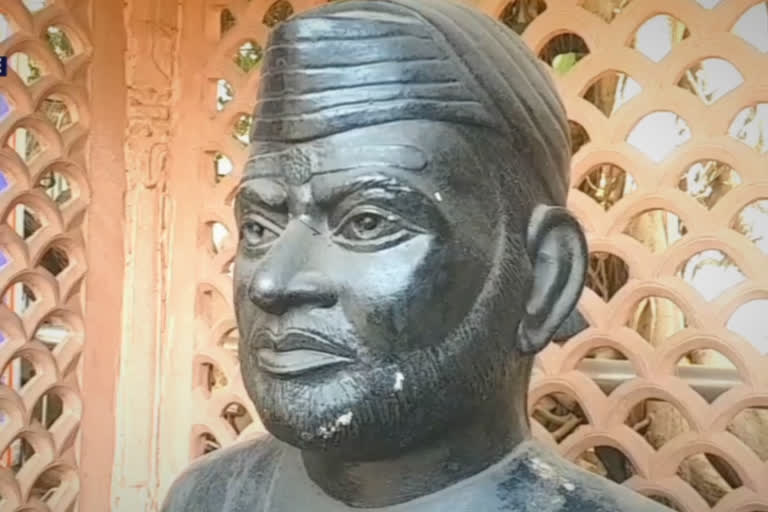Gwalior: With the hatred against the colonial British government surging in the country in 1857, many of his colleagues used to tell him that he too should take up arms against them as the time of the British in India was over. However, taking up arms was not his way to fight against the British and he told his colleagues that when the time comes he will contribute to the freedom struggle in such a manner, that the freedom fighters will appreciate him. This was Amar Chandra Banthia, the treasurer of the Princely State of Gwalior, ruled by the Scindia dynasty.
Born in 1793 in Bikaner of Rajasthan, Amar Chandra Banthia since childhood had a strong desire to do something to contribute to the honour of the country. His father had an ancestral business in Bikaner. But due to financial loss, his father had to shift to Gwalior with the family.
The then Maharaja of Gwalior gave refuge to his family and advised him to resume his business in the princely state. His hard work paid off and soon discussions regarding the honesty of the Banthia family were doing the rounds in Gwalior.
Amar Chandra's mastery over financial affairs drew the attention of the ruler of Gwalior Jayajirao Scindia who appointed him as the treasurer of the princely state. It was a major responsibility as the treasures of Bikaner were a closely guarded secret about which only a few officials had information.
However, Amar Chandra's life was about to change and his desire to contribute to the glory of the country about to be fulfilled. He waited for the right time to act.
The time came when in 1857 Rani Laxmibai of Jhansi decided to take the British forces head-on. She was attacking all the princely states allied with the British near Jhansi. She captured Gwalior. But her army was suffering from an acute shortage of funds and soldiers were not getting their salaries for months. The supply of food and drinks was also running out.
Seeing the situation, Amar Chandra decided that now was his time to act and fulfil his childhood desire. He was determined not to let the war for Independence die down due to a lack of funds. He divulged the whereabouts of a hidden treasure to Rani Laxmibai.
He had played his part in the war for independence. But Amar Chandra was well aware that the act will cost him his life. The Britishers were stunned and decided that Amar Chand will have to pay with his life for what he did.
Four days after June 18 when Rani Lakshmibai gained martyrdom, Amar Chandra was tried for sedition and sentenced to death. He was hanged from a tree at Sarafa Bazar. The British kept his body hanging for three days in a bid to instill fear in the hearts of people.
Even today there is a statue of Amar Chandra Banthia under the same tree in the bullion market of Gwalior. It reminds every passer-by about his ultimate sacrifice for the independence of the country.



